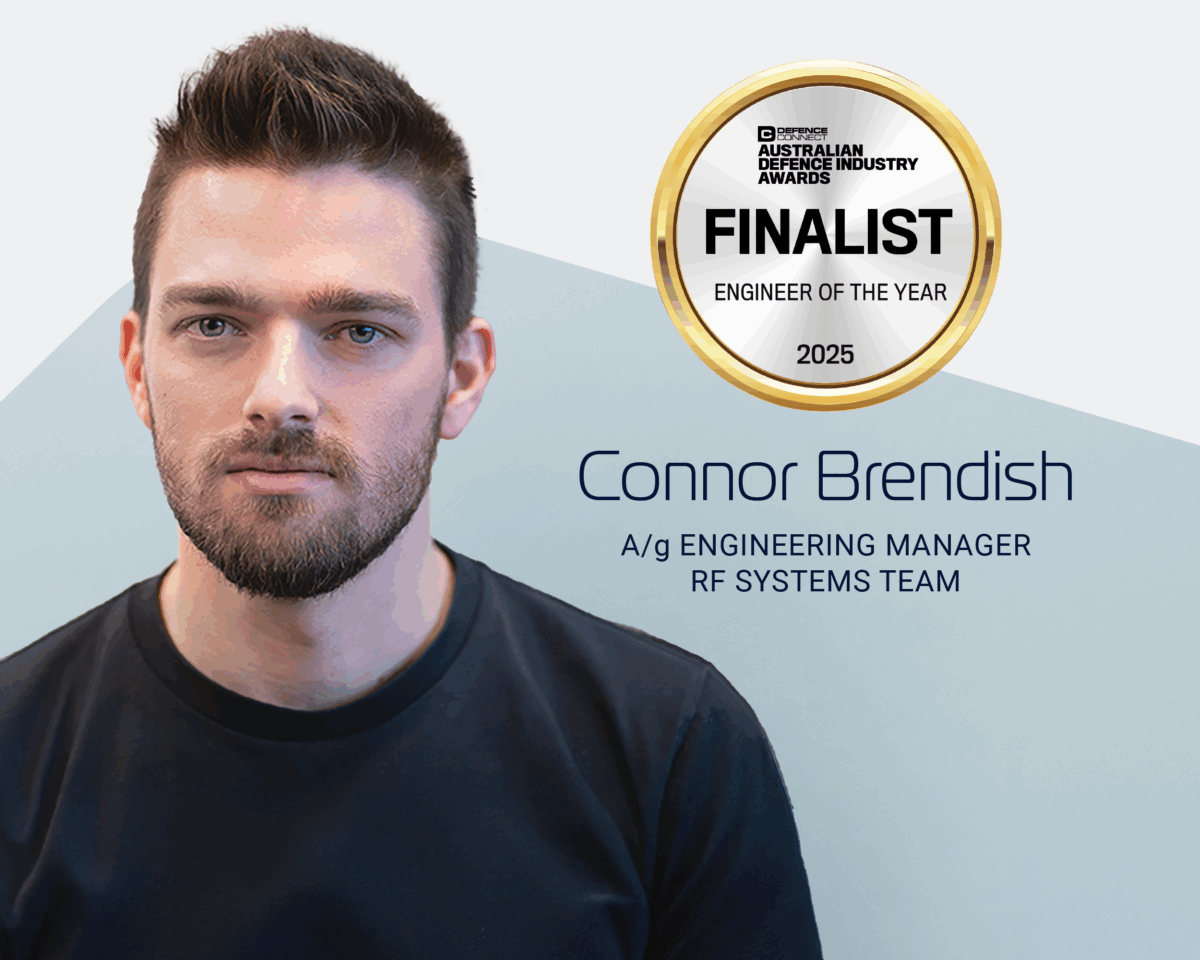Q&A with Connor Brendish
As a finalist for Engineer of the Year at the 2025 Australian Defence Industry Awards, we sat down with Connor to talk about his work, his approach, and why curiosity is one of the most powerful tools in Defence tech.

1. Connor, can you tell us a bit about your role at PentenAmio and the kind of work you lead?
At PentenAmio, I serve as Engineering Manager for the RF Systems team, where I lead the design, development, and delivery of electronic warfare and cyber training capabilities. I work across hardware, software, UX and product development for our AI business line — including full-stack development of solutions like TrapRadio and Training.ai, which support frontline operators with mission-ready tools for deception and cyber resilience.
2. TrapRadio has received national and international recognition, including success under AUKUS Pillar II. What makes it such a game-changer?
TrapRadio is a sovereign, AI-powered electronic decoy that allows friendly forces to mask their real positions and mimic large-scale, believable radio activity. It disrupts adversary sensors, creates confusion, and ultimately protects lives. What makes it powerful is that it’s portable, easy to operate, and highly realistic making deception accessible and tactically valuable in the field.
3. You’ve been hands-on in both software and hardware development. What’s driven you to cross those boundaries?
Necessity and curiosity. When TrapRadio needed to scale rapidly after early success, we faced resource constraints, so I upskilled across electronics design and RF engineering. I’m now able to efficiently develop integrated solutions, from discrete hardware components all the way up to the UI. For me, it was just the logical next step to solve the problem. But I’ve since realised how rare that breadth is in our industry.
4. What role do you see AI playing in the future of Defence technology?
AI won’t replace the operator, but it will make our systems faster, more adaptive, and more realistic. Whether it’s generating believable radio traffic with TrapRadio or scaling cyber training with Training.ai, AI enables Defence to think and train at operational tempo. It gives our teams time back and better prepares them for tomorrow’s challenges.
5. You’ve played a big role in mentoring early-career engineers. Why is that important to you?
I was lucky to be mentored early in my career, and it changed my trajectory. At PentenAmio, I’ve led our internship program and helped bring in curious, capable people many of whom are still with us or in other national security roles. Mentorship grows capability, but more importantly, it opens doors that some people don’t even realise are there.
6. What advice would you give to engineers considering a career in Defence tech — especially those from non-military backgrounds?
You don’t need a Defence background to make a difference in Defence. I didn’t come from the military, but I’ve found that curiosity, problem-solving, and persistence are what really count. If you’re someone who builds, tests, and questions how things work, there’s a place for you here. We need more people who aren’t afraid to take on tough problems and keep pushing until something gives.